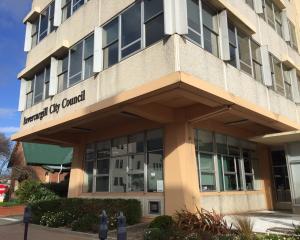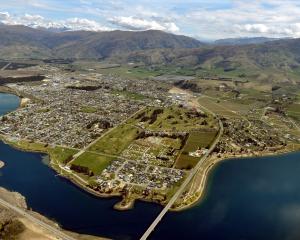
Question 1: What should the Gore District Council do about the state of roads in the district?
Question 2: What are your goals and priorities for council?
LIZ ADAMS-GRAY
Ward: Council — at large.
Age: 64.
Occupation: N/A.
Question 1: Being a "newby" here, I am yet to learn who does what and who pays for signage and road management, sorry, but I do believe that residents and road users should be encouraged to speak up and report their observations of where work is required. Jobs can be dealt with then before becoming hugely expensive and as in the case of all infrastructure, to be done to the best standard at the best price.
Question 2: My goals would be to, firstly learn the systems in play so I am able to grow into the role and become a useful member of the council and therefore able to achieve the best outcomes for ratepayers.
As a public servant, to be as transparent as possible and always to be available to hear from any Gore district residents, urban or rural, if they believe I may be of assistance in matters relating to council.
GLENYS DICKSON
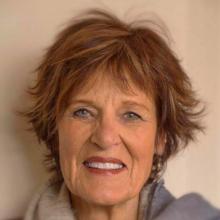
Age: Declined.
Occupation: Retired.
Question 1: The Gore district has a small rate base with a large roading network, serving heavier and increased domestic transport. Adequate allocation of funding from rates and NZTA subsidies, along with skilled roading maintenance operators, are essential to sustain and improve roading in the district.
Bringing major bridges in the network’s weight restrictions up to a standard to carry today’s heavier vehicles is important for Gore and Southland’s economy.
Question 2: It is most important that councillors are well connected to the community they serve. I am committed to listening and advocating for the people in the Gore district. I believe in local people making local decisions.
A sustainable rating system, waste minimisation and recycling, separating wastewater and storm water in a sensible cost-effective model, minimise flooding, completing a localised, robust District Plan for future generations and supporting community wellbeing are my priorities.
STEVEN BOKO DIXON
Response not received before deadline.
NICK GRANT
Response not received before deadline.
BRET HIGHSTED

Age: 53.
Occupation: Tulloch Group general manager.
Question 1: Focus on projects that attract a higher level of NZTA subsidy that will reduce the burden on ratepayers.
Safer pedestrian and cycle access to Hamilton Park is one of my goals, where NZTA will fund the majority.
Formation of road interest groups who can inform councillors and staff, including a review of the size of the new roundabouts.
Use of resident feedback systems to report issues and also to ensure they are recorded/followed up.
Question 2: To provide the best possible value and leadership to our community.
We need more people to choose Gore district as their home, not only to grow our population but to provide the workforce our farmers and business owners desperately need.
Review of recycling options is timely.
We need to do our best to ensure a local based alternative is sought in light of Government intervention in Three Waters. A time where experience will count.
KEITH HOVELL

Age: 69.
Occupation: Resource management hearing commissioner.
Question 1: Council needs to review its processes to be more time efficient, to quickly ensure small repairs don’t become major works, and are more cost efficient so our rates dollar goes further, providing better value for money. Controls are also required on non-essential heavy vehicles using rural roads as a short-cut to main routes, especially to and from adjoining districts.
Question 2: With 18 years as planning adviser to the council, I understand the issues concerning residents and the opportunities for development within the district. While retaining the values important to the community, my goal is to address those issues and realise the districts full potential. Meetings open to the public should be the norm, not the exception and full information should be shared, with opportunities for public feedback, before decisions impacting on residents are made.
ROBERT MCKENZIE
Response not received before deadline.
PAUL MCPHAIL
Declined to respond.
RICHARD MCPHAIL
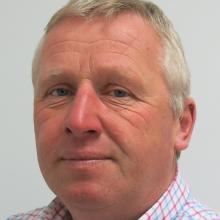
Age: 56.
Occupation: LIT senior agri manager.
Question 1: The formation of joint council/rural workshop groups to identify the issues that are regularly hitting certain road use patterns and areas of seasonal damage which can be rectified to give long term benefits. This has been tabled within the GDC and is in progress for developing further. It would also have ability to allocate resources based on long term road users local knowledge.
Question 2: The last term has been challenging, we took initiatives to build on our district. We have had success but with this came change to the way we lived and functioned. The coming three years will be no different with pressures from legislation, central government and the global economic situation. Waste management change and new residential housing projects are now a reality. We have major decisions around land use, Three Waters and rural roads which will be a priority.
STEPHEN MCSTAY
Response not received before deadline.
BRONWYN REID
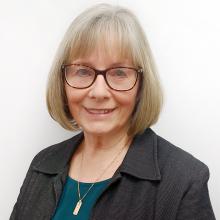
Age: Declined.
Occupation: Gore High School science technician.
Question 1: Continuing maintenance and upgrading of footpaths to allow safer use by pedestrians, visually impaired and users of mobility transport.
Collaborating with Waka Kotahi for a large roundabout installation at the southern entrance of Gore.
Improvements in size and moving to correctly built, permanent structures of the new roundabouts within Gore township.
Construction of a safe pedestrian access across State Highway 1 for entrance to Hamilton Park.
Question 2: Recycling engagement with local communities moving to establish a service that enables ratepayers within the Gore district to participate fully in meaningful recycling and waste minimisation.
Establishment of a Recycling Recovery Hub at the refuse centre.
Encourage new people to relocate to the district, thus widening our rates base, increasing school enrolments and supporting local businesses.
Completion of Three Waters infrastructure projects currently under way.
Working with Environment Southland to ensure delivery of safer flood bank protection.
JANEEN RETI
Response not received before deadline.
JOE STRINGER
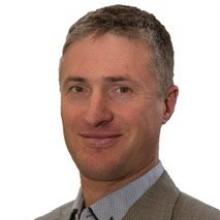
Age: 38.
Occupation: Business owner/telecommunications service provider.
Question 1: Roading is one of the core services provided by our council. Many rural roads have been left too long before receiving maintenance, making them expensive to fix. We need a regular programme of work to address this. We also need to extend sealing of gravel roads over time, which will reduce some of the maintenance needed. Our urban streets need regular painting and general upkeep, and the quality of footpaths is particularly important for our older residents. [abridged — Ed.]
Question 2: We need to get back to basics, invest in our key services and stop the vanity projects. This will encourage growth and development here as residents and businesses can invest with confidence for the future. We need to genuinely connect with our communities and be representative of their views — particularly as we head into a challenging period of big reforms for local government. We need to tackle council debt, not leave it to the next generation to deal with.
REUBEN RUPI TURIPA
Response not received before deadline.



